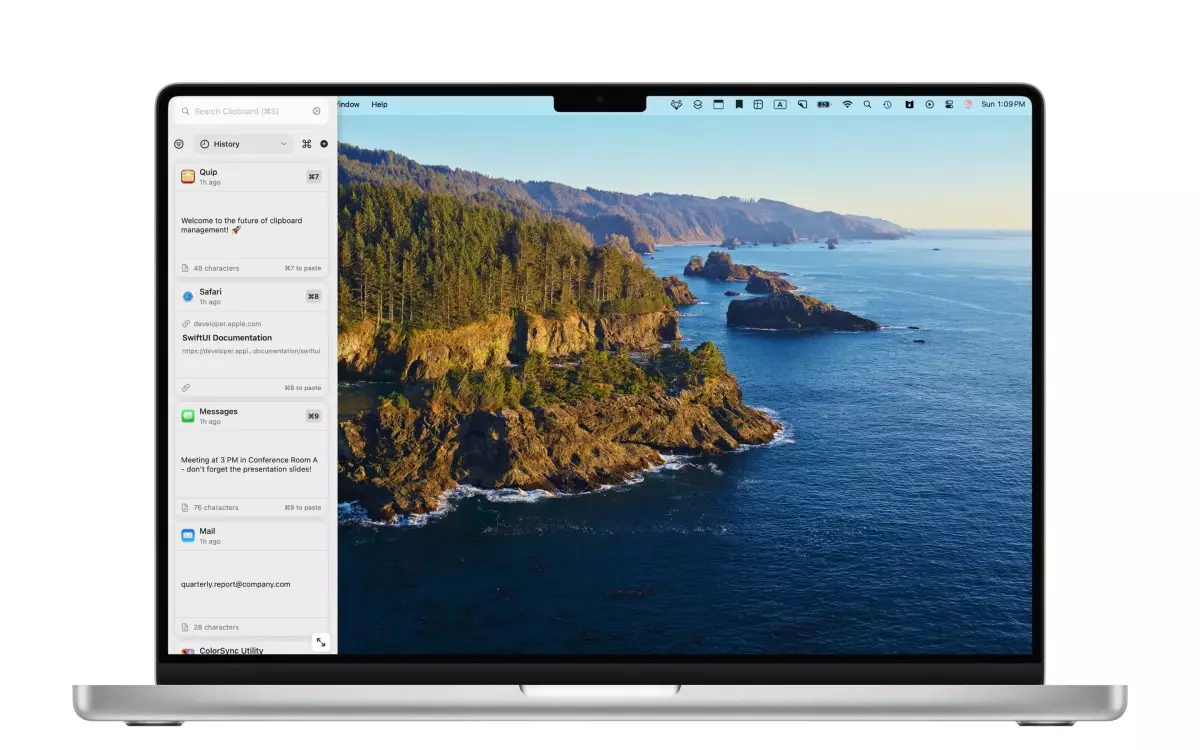For decades, the clipboard has been an overlooked yet vital component of our daily digital routines. Traditionally, it serves as a basic temporary storage, allowing quick copy-paste actions without much thought. However, this simplicity often limits productivity, forcing users to repeatedly copy and paste or execute convoluted workarounds. The advent of Quip marks a paradigm shift, transforming the traditional clipboard into a sophisticated, intelligent hub tailored for power users seeking control, flexibility, and enhanced efficiency. Unlike conventional clippers, Quip introduces dynamic features like customizable organization, smart collection management, and seamless cross-device integration, empowering users to regain command over their digital snippets.
Unleashing Customization and Control
One of Quip’s most compelling strengths lies in its deep customization capabilities. Standard clipboards often lack options for organization or filtering, making it a challenge to locate or manage past entries. Quip counters this by offering a robust categorization system. Users can filter clipboard histories by text, links, images, code, and recent activity, ensuring rapid access to relevant snippets. The app further enhances control through its collection feature—allowing you to group related clips and set up automatic “smart” collections that adapt based on your usage patterns. This level of organization is akin to having a personal assistant who knows your workflow and anticipates your needs.
The inclusion of a “super shortcut” feature signals a focus on efficiency. By defining abbreviations for frequently used snippets, users can dramatically shorten repetitive tasks. Imagine typing “addr” to paste your full address or “sig” for your signature—this simple augmentation streamlines processes that normally demand multiple steps. Notably, Quip extends this automation to URLs, code, and even capturing content from presentations or PDFs with dedicated shortcut triggers, forging a cohesive environment for multitasking professionals.
Privacy and Security: Thoughtful Data Management
In an era where data privacy is arguably more critical than ever, Quip’s approach to security deserves special mention. The app, aware of the sensitive nature of clipboard content, incorporates granular privacy controls by default—excluding passwords, credit card information, and PII from its history. Additionally, it consciously ignores temporary or debug data, reducing clutter and mitigating potential data leaks. Users are empowered to tailor these settings further, specifying which applications or keywords the app should ignore, fostering a sense of trust and security. This user-centric design demonstrates a well-rounded understanding that productivity tools must not compromise security.
However, the reliance on data collection for useful features (such as history recall and intelligent suggestions) raises questions about ongoing privacy implications. While the defaults prioritize user safety, the potential for misuse or accidental data exposure remains a concern, especially as the app expands its AI integrations.
Intelligent Features and AI Integration
The integration of AI, even in its nascent stages within Quip, signifies an ambitious stride toward smarter workflows. The application currently uses Apple’s natural language processing capabilities, with plans to transition to more advanced, offline AI models later in the year. This shift promises smarter content recognition, enhanced automation, and more refined suggestions—making the clipboard not just a container but an active participant in your productivity ecosystem.
The developers’ use of AI tools like Cursor and Claude demonstrates a strong commitment to leveraging cutting-edge technology, driven by a desire to craft a truly intelligent app. The potential here is vast; imagine a clipboard that auto-formats code, cleans URLs, or detects duplicates without user intervention. These features could ultimately redefine how we interact with digital content—if executed thoughtfully, they can dramatically reduce friction and elevate efficiency.
Design Philosophy and User Experience
The app’s unobtrusive design—living on the menu bar on macOS and a dedicated keyboard on iOS—ensures that it enhances workflows without becoming a distraction. This subtle presence is essential for power users who need quick, non-disruptive access. Additionally, the seamless integration with Apple’s continuity camera enables instant sharing between iPhone and Mac, emphasizing a cohesive ecosystem that leverages Apple’s hardware and software synergy.
Yet, the success of such a tool hinges on a delicate balance: providing enough features to be valuable without overwhelming users or complicating the interface. Quip appears to straddle this line well, prioritizing essential functionalities and privacy controls while leaving room for future enhancements driven by AI advancements.
Final Reflection: A Bold Step Toward Smarter Productivity
Quip’s emergence challenges our notion of a clipboard as a mere copy-paste utility, positioning it instead as a personalized, intelligent toolkit. Its combination of customization, automation, and core privacy principles indicates a clear vision: to elevate everyday digital tasks into streamlined, manageable workflows. While the app is still evolving—particularly in the area of AI—it sets a compelling precedent for future productivity tools.
In a landscape saturated with generic utilities, Quip’s innovative approach embodies the power of thoughtful design, user agency, and technological advancement. If it continues down this trajectory, it may well redefine not just how we manage clips but how we interact with digital content at large—transforming a simple tool into a vital partner in our daily productivity.

